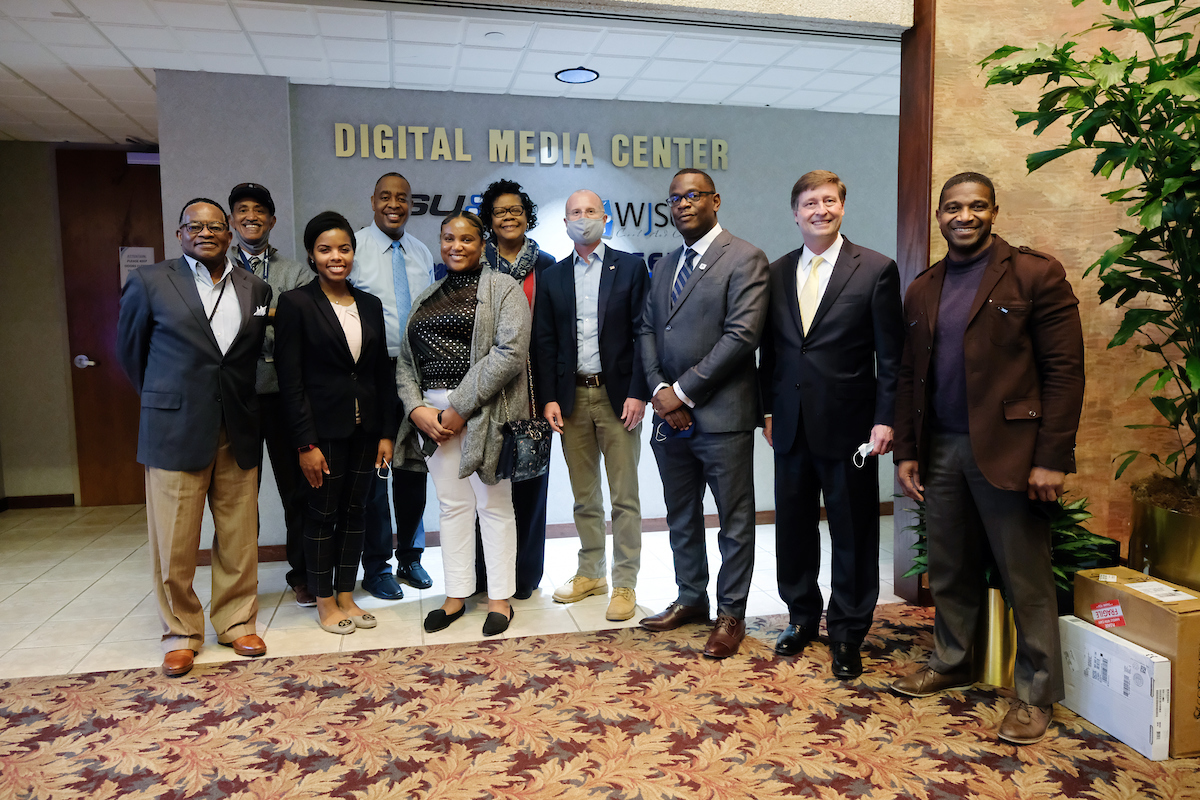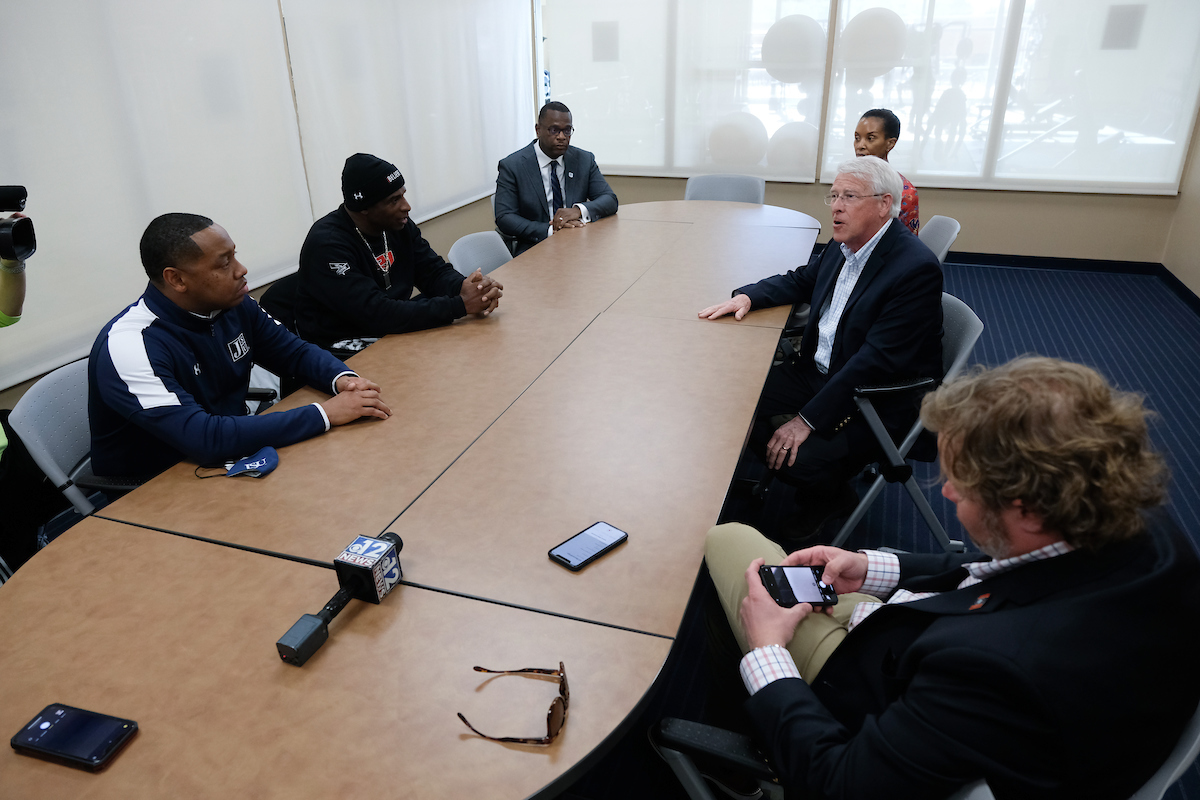

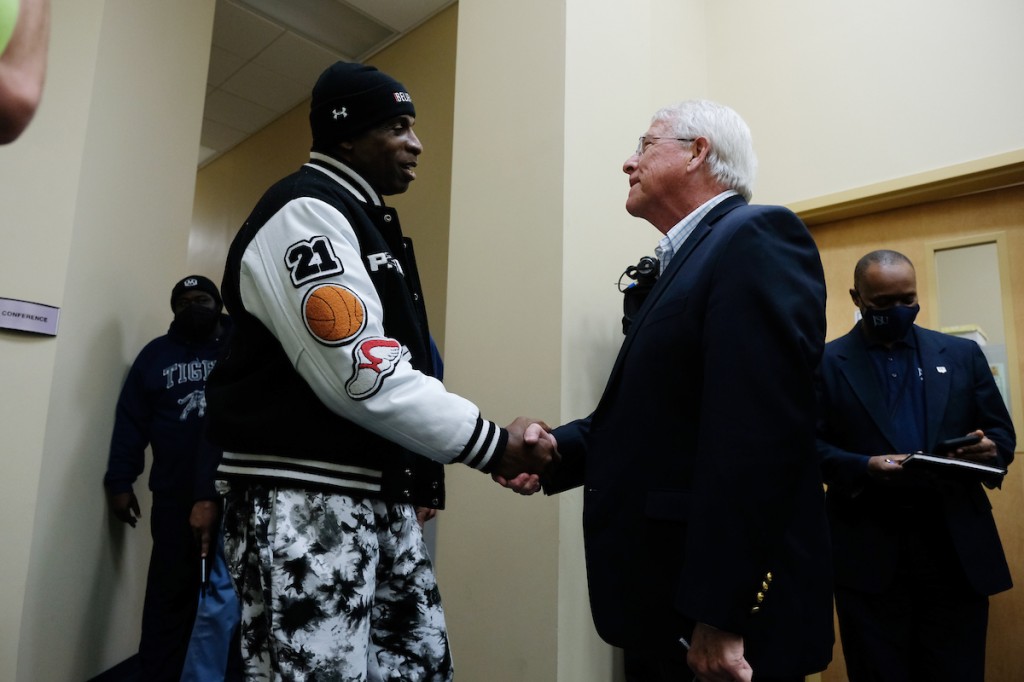

U.S. Sen. Roger Wicker sought opinions from JSU President Thomas K. Hudson and Tigers’ Coach Prime about compensating student-athletes for the use of their names, images and likenesses and claims the “devil is in the details” about a proposed “Player’s Bill of Rights.”
The meeting last week was part of a whirlwind tour of Mississippi by the senator and Federal Trade Commission’s Brendan Carr. Wicker tackled the thorny issue known as NIL (name, image, likeness), and both addressed expanding rural broadband for greater access to telehealth. The duo also spoke to students in Journalism and Media Studies about other industry topics.
Meanwhile, Wicker predicts that a “bill of rights” could torpedo any chance of passing a federal compensation bill. One such national proposal is being pitched by Sen. Corey Booker of New Jersey. It would mandate that NCAA players receive monetary compensation, long-term health care, lifetime educational scholarships and revenue sharing. Of course, it’s an idea that faces an uphill battle in Washington.
Wicker is the ranking Republican on the Senate’s Committee on Commerce, Science and Transportation. His panel governs the sale of name, image and likeness of student-athletes. He said, “There is widespread agreement on the idea that student-athletes should be able to profit from their own name, image and likeness.”
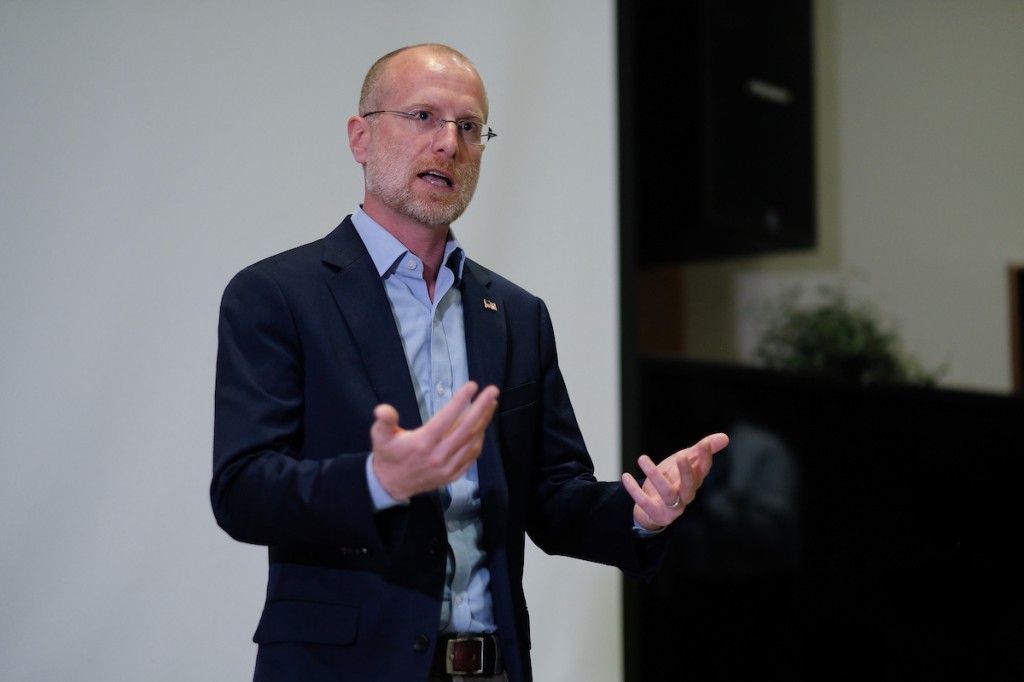
As it relates to Jackson State University, Hudson said he appreciated that the urban HBCU was included in last Thursday’s discussions in which state Rep. Angela Cockerham, a JSU alum, participated. In response to Wicker, Hudson agreed that a college-athlete’s “bill of rights” is a “tricky proposition, especially for a university like Jackson State.”
While Wicker’s tour aimed to gauge “what will work and what won’t work,” Hudson said, “One area in which JSU is ahead of the game is that about 80 percent of our revenue already goes back to our student-athletes. We’re not generating large profits, but what we do generate goes back into the support and care of our student-athletes.”
Hudson said, “The university’s athletic department already foots that bill; however, that aspect has to be rethought in terms of what is actually revenue. One of the unfortunate aspects is that this (bill of rights) looks more at the Power of 5 model (ACC, Big Ten, Big 12, Pack-12, SEC).” He added, “That’s where you generate huge television profits, and the like, and you really aren’t looking at some of your smaller schools or midlevel schools where revenue is tied into your expenses. I really hope we come up with a model that works for everyone.”
Coach Prime, a staunch advocate for student-athlete compensation, said he sampled the matter as it relates to name, image and likeness. He recounted playing professionally for the New York Yankees during his junior year in college. That decision jeopardized his amateurism status in football. Ultimately, the Yankees had to compensate him to return to school as a walk-on for Florida State University when he was a senior.
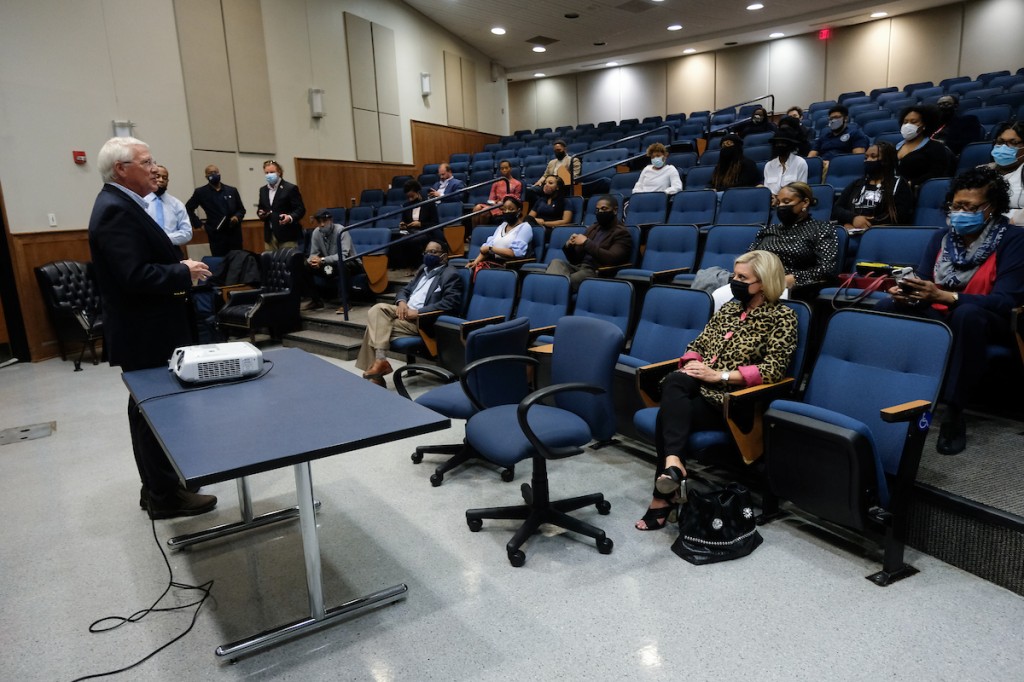
“It poses some problems, but with the right support and staff those problems can be handled,” Coach Prime said. “There are a lot of questions from the NCAA standpoint – what’s on, what’s off. It’s really tricky when you’re bringing representation to a kid that’s only a freshman. So, when does that representation start? Was it in high school? Now, you’re getting into the legality of whether that kid was recruited illegally.”
Prime agreed, “I think these kids should be compensated tremendously for their image and likeness. I’m going to help my kids do that.”
Nodding in agreement, Wicker still suggested that “the devil is in the details and, with regard to NIL, my bill’s provision would be that they would create an entity under the jurisdiction of the Federal Trade Commission.” He said he’d rather allow an entity with rule-making authority to sort out complexities, rather than kicking the matter back to the broader FTC.
Although the U.S. Supreme Court continues to weigh whether the NCAA is illegally “fixing” compensation of student-athletes, the Mississippi Legislature recently passed SB 2313, known as the Mississippi Intercollegiate Athletics Compensation Rights Act.
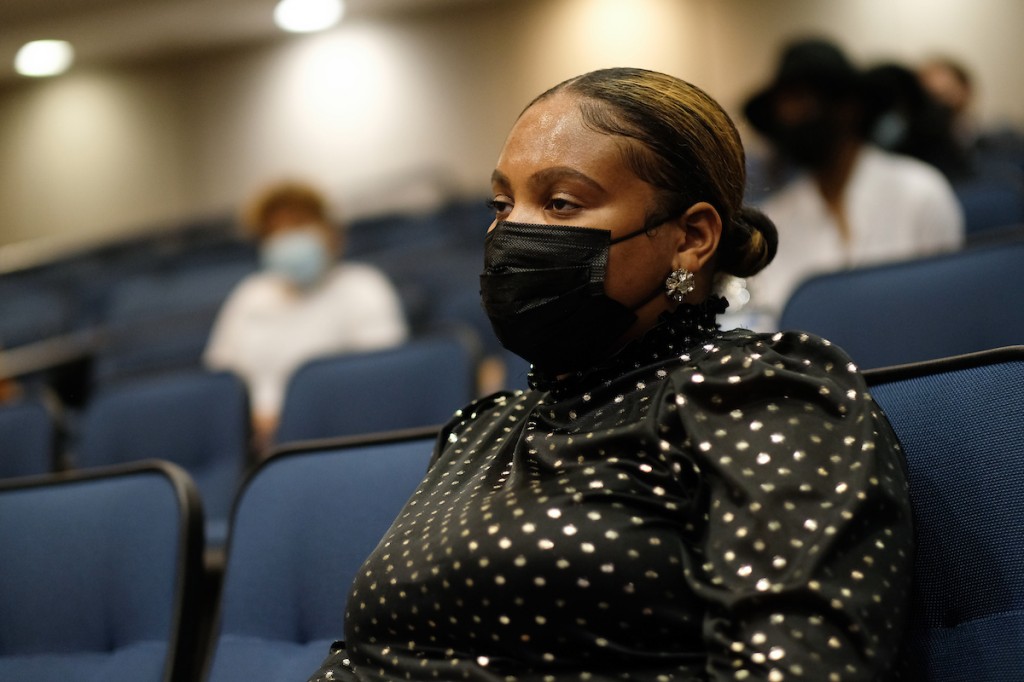
Along with other provisions, the bill allows student-athletes to “earn compensation, commensurate with market value, for the use of the name, image, or likeness of the student-athlete while enrolled at a postsecondary educational institution.” Also, the state bill provides that a student-athlete can “retain a certified agent for any matter or activity relating to such compensation.”
Gov. Tate Reeves is expected to sign the bill into law. It would go into effect July 1.
Cockerham said state lawmakers examined California and Florida laws before Mississippi prepared its own “comprehensive legislation” that’s now waiting for the governor’s signature. She told Wicker “we also looked at what you were introducing on the federal level, which provided great guidance.”
At the U.S. Supreme Court level, justices are hammering away, questioning whether schools are “conspiring” by agreeing with competitors to pay no salaries to workers. They also expressed concern about coaches’ salaries ballooning in the amateur ranks, while ignoring amateur student-athletes.
Pivoting to another issue, Carr and Wicker provided updates on rural broadband throughout Mississippi. They told students and instructors in JSU’s Department of Journalism and Media Studies that the state is looking particularly great because access is expanding throughout the U.S. because of the FCC’s $20 billion Rural Digital Opportunity Fund. They expressed confidence in significantly closing the digital divide.
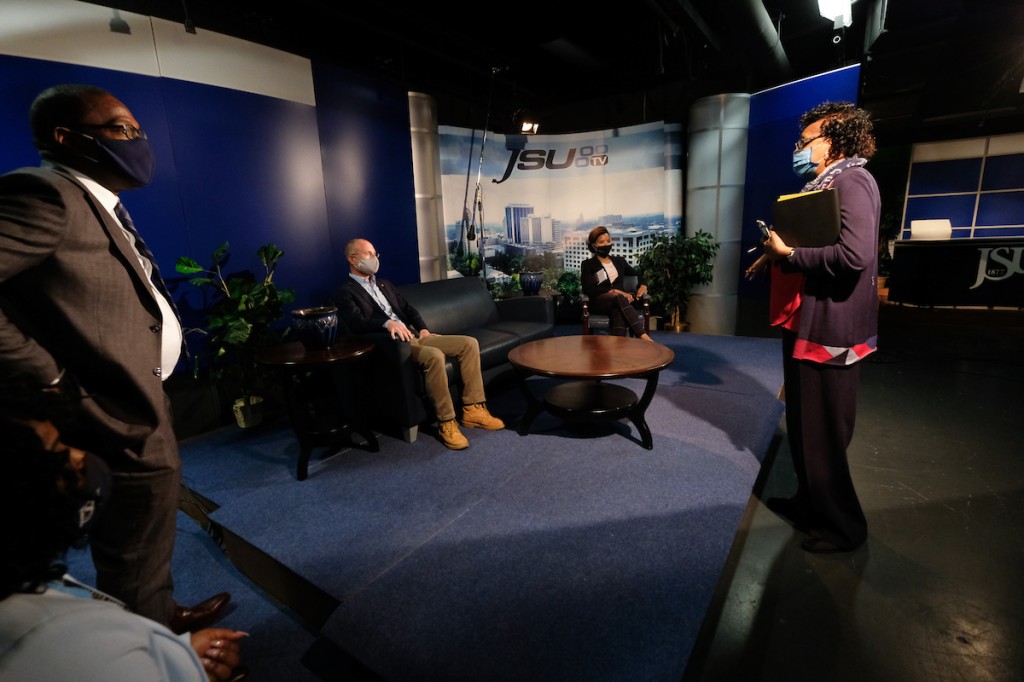
The result, of course, is expected to improve opportunities for households to engage in telehealth with their professional care providers through powerful broadband connections.
Carr also addressed the struggles of small-town newspapers, saying “economic trends are making it very difficult for them to survive.” He cited a severe reduction in advertising revenue.
“At the FCC, we had these artificial rules put in place that blocked one entity from owning multiple small-town newspapers. It was well-intended for creating diversity of owners and diversity of views,” he said. However, Carr noted some media organizations’ inability to compete with news sources that weren’t restricted in its coverage. For example, he said that Facebook isn’t prohibited in its audience reach while TV broadcasters had served only a specific percentage of the population.
“That has now changed,” Carr said. He explained the steps taken by the Supreme Court in 2017 that are now going into effect. Those changes allow a number of media outlets to acquire additional investments and consolidations.
“It’s one way to reinvest in local journalism,” Carr said.
